Port Talbot: Tata Steel faces crunch-time, professor warns
- Published
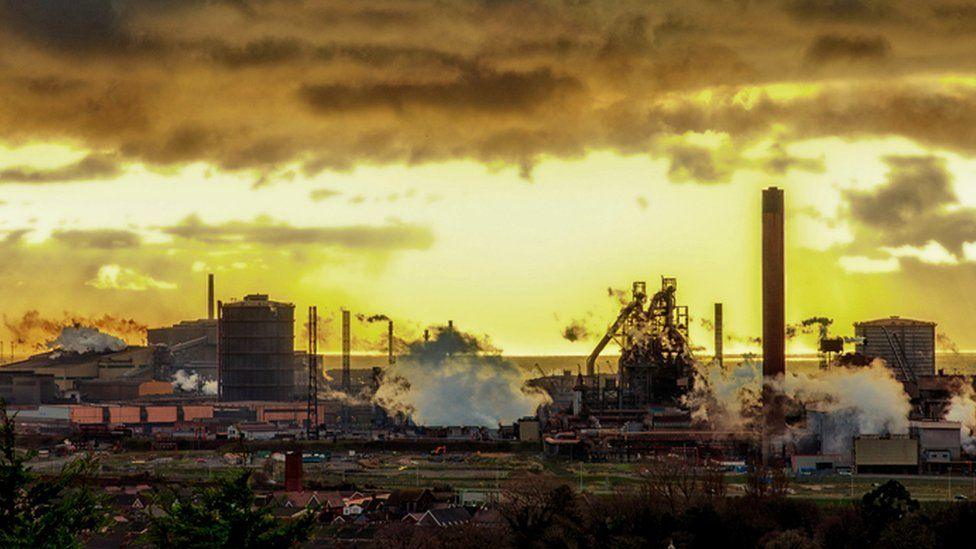
One professor believes carbon capture and storage is the answer, but an economist suggested the technology would not be a viable solution.
The UK's largest steelworks is facing "crunch time" over reducing carbon emissions, a professor has warned.
There have been warnings the Port Talbot plant could be closed if a deal isn't reached for subsidies to reduce carbon emissions.
Tata Steel said it was committed to cutting its impact on the environment and climate change.
Prof John Gibbins said the technology could cost up to £1bn and take years to implement, but would save jobs.
He told BBC Wales carbon capture and storage was the answer. But an economist said the technology would not be viable.
So, what are the issues when it comes to making steel greener?
Prof Gibbins, Director of the Carbon Capture and Storage Research Centre, said carbon capture and storage would allow the plant to make low or zero-carbon steel beyond 2050.
Carbon Capture and Storage is the process of capturing carbon dioxide before it's released into the atmosphere, and then transporting and storing the carbon.
He said the technology would take two to three years to implement, and cost between £500m and £1bn.
He said: "This is something that will preserve jobs, real jobs. What needs to be done, is for the Welsh government first of all to latch onto the idea.
"This is crunch time, if that plant gets closed then God help us."
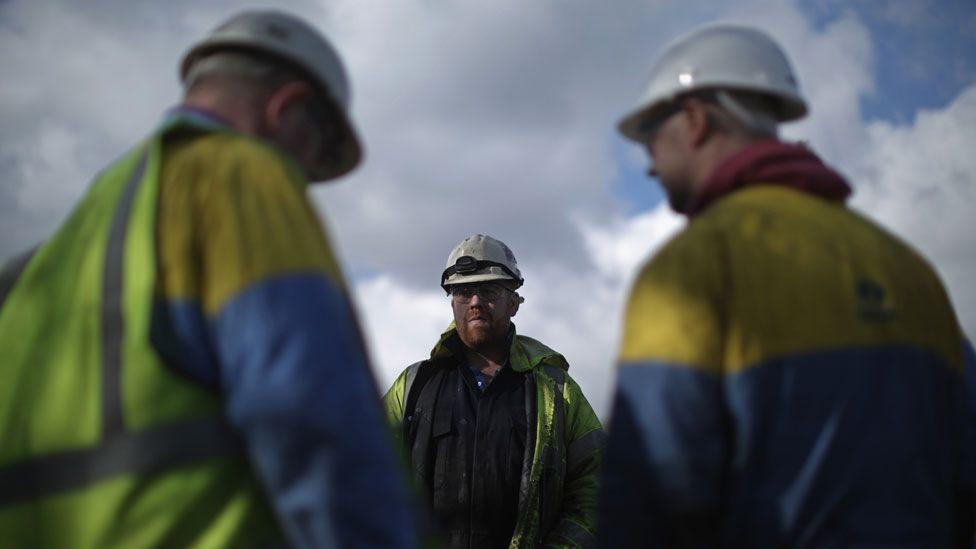
Thousands of jobs in Wales are linked to Port Talbot's steelworks
But Cardiff University Business School economics professor, Calvin Jones, said carbon capture would not work at Port Talbot and would add "significantly" to steelmaking costs.
He said: "Unfortunately, carbon capture and storage has not been proved at commercial scale - for fossil energy generation or industry.
"In the case of Port Talbot, there is simply nowhere near to store the carbon. Newly leased UK storage sites are all in the North Sea.
"This will require either an entirely new CO2 pipe-distribution network, or a fleet of CO2 carrier ships to take Port Talbot's CO2 to where it can be geologically stored.
"Either will add very significantly to steelmaking costs."
He did not believe carbon capture would be able to fix the climate problem for energy, industry or Port Talbot.
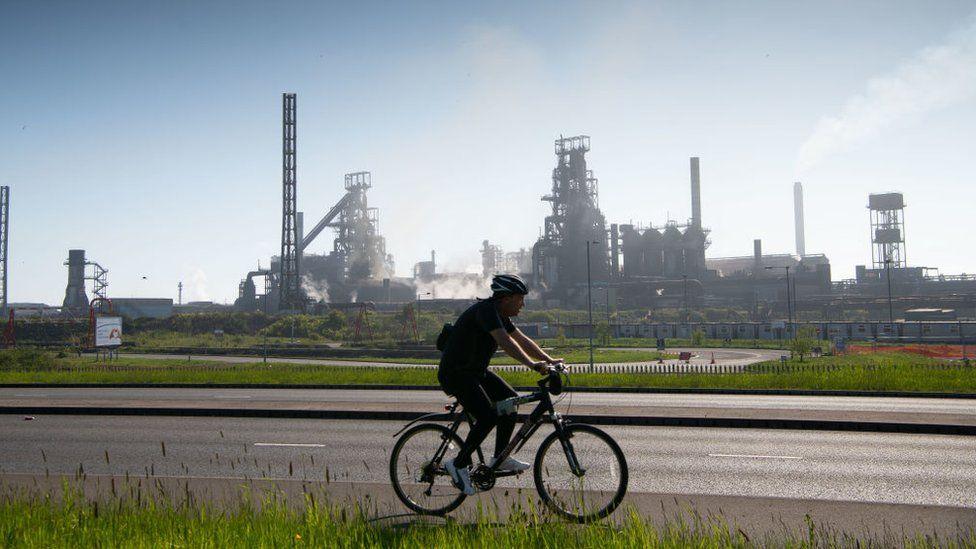
Despite disagreeing on how to solve the problem, both scientists agree Port Talbot's Carbon emissions need to be addressed
Prof Jones said there were alternatives.
He said: "There is some steel-making under development using hydrogen instead of coke. For example Volvo are procuring this for their cars.
"This of course requires a surplus of hydrogen, which can only be made in a zero carbon way with green electricity.
"Unfortunately, Wales has been slow to develop green electricity. South Wales has one of the highest carbon electricity supplies in the UK.
"So again, there would need to be, probably, billions in investment in and around the area to make this a reality for Tata.
"We have a lot of catching up to do."
What do people in Port Talbot think about the possible closure of the steelworks?
Tata Steel said it was committed to cutting its impact on the environment and climate change.
The firm said its ambition was to produce net-zero steel by or before 2050, and to have reduce 30% of CO2 emissions by 2030.
A spokesman said: "The company continues to make progressive strides in reducing the environmental impact of its processes through innovation, investment and collaboration.
"Additionally, its steel products remain critical not only for UK manufacturing supply chains, but also in the UK's transition to a green economy."

Tata Steel knows it has to dramatically reduce the amount of CO2 it emits to reach its own targets as part of the UK's transition to net zero.
But, because the Port Talbot steelworks is vast and complex, radically changing the way it makes steel doesn't just take millions of pounds, it also takes years.
That is exactly why the steelworks' owners want to know whether the UK government favours an economy based on renewable energy or hydrogen.
It needs an answer quickly because transferring to an electric powered furnace or building a system to capture and store the carbon it emits would take years.
The steel industry also sees itself as fundamental to building a new economy in Wales and the United Kingdom: whether that is building more nuclear power stations , wind farms or or transport infrastructure.

A CAREER CHANGE WITH A DIFFERENCE: Police new recruits adapt to life on the beat
THE CRASH DETECTIVES: Inside the cordon with Gwent Police's forensic collision investigators

- Published26 July 2022
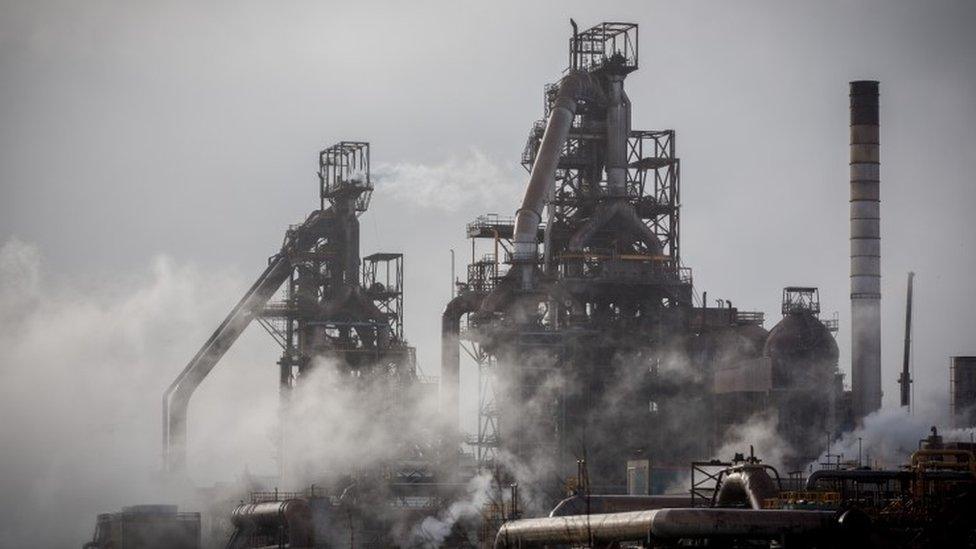
- Published22 July 2022
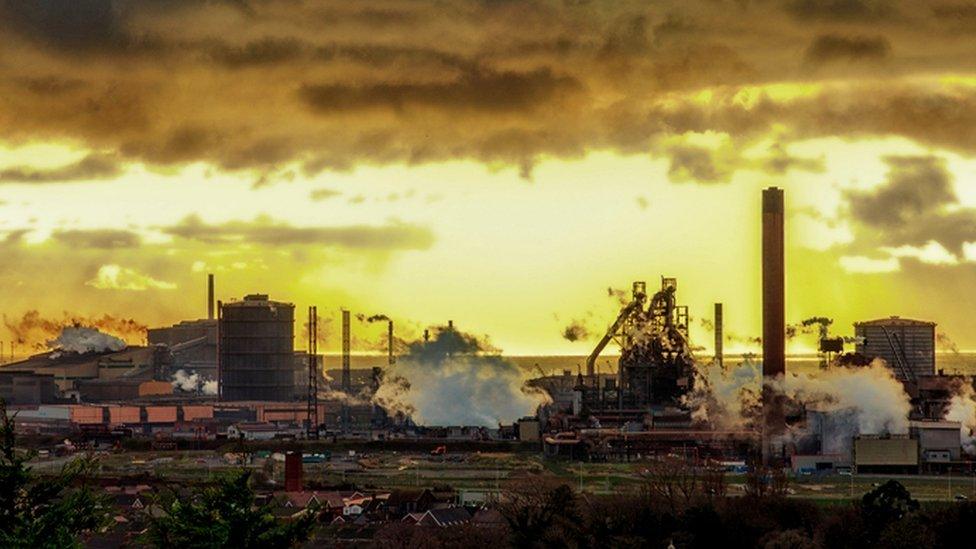
- Published22 July 2022
